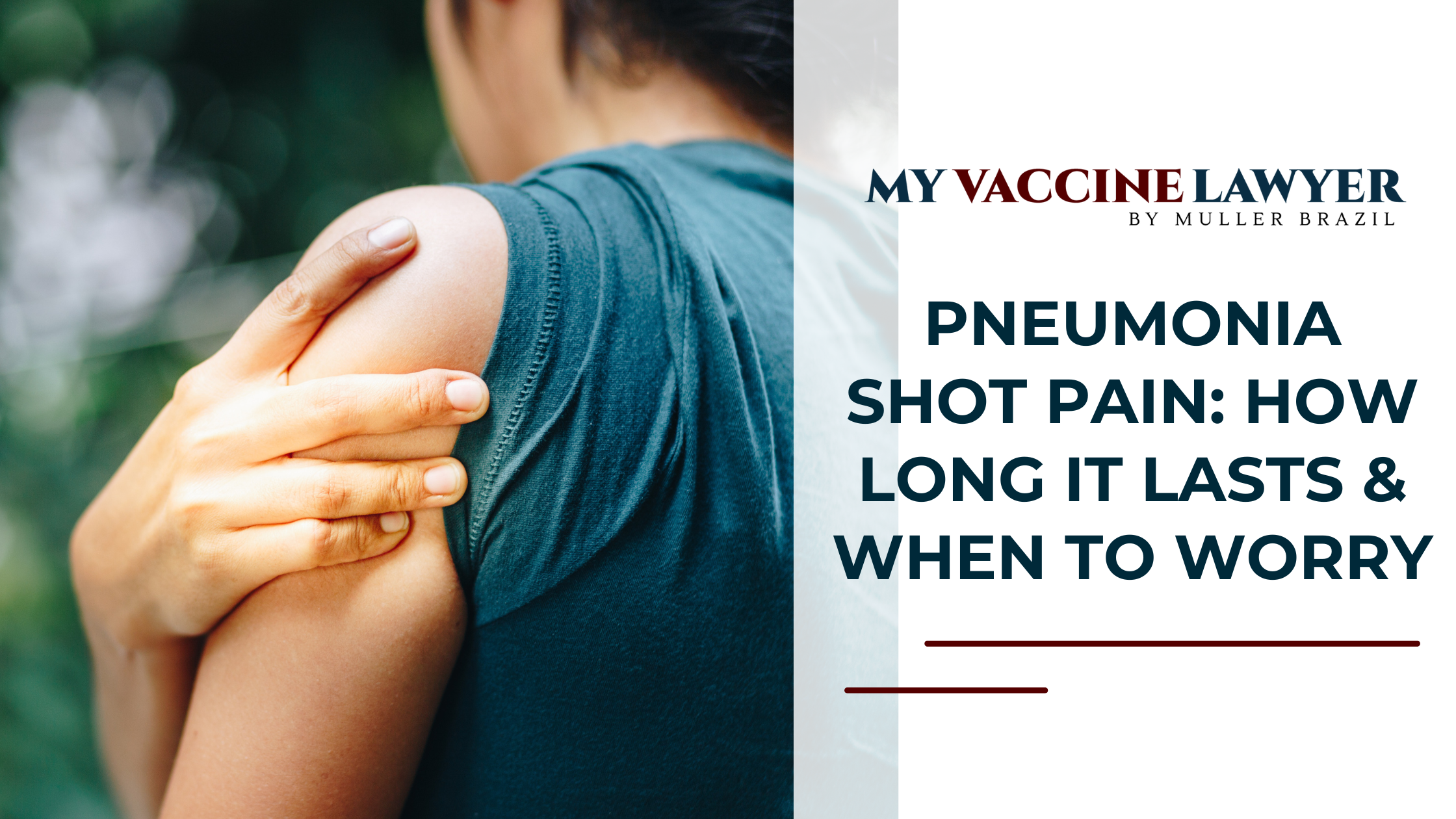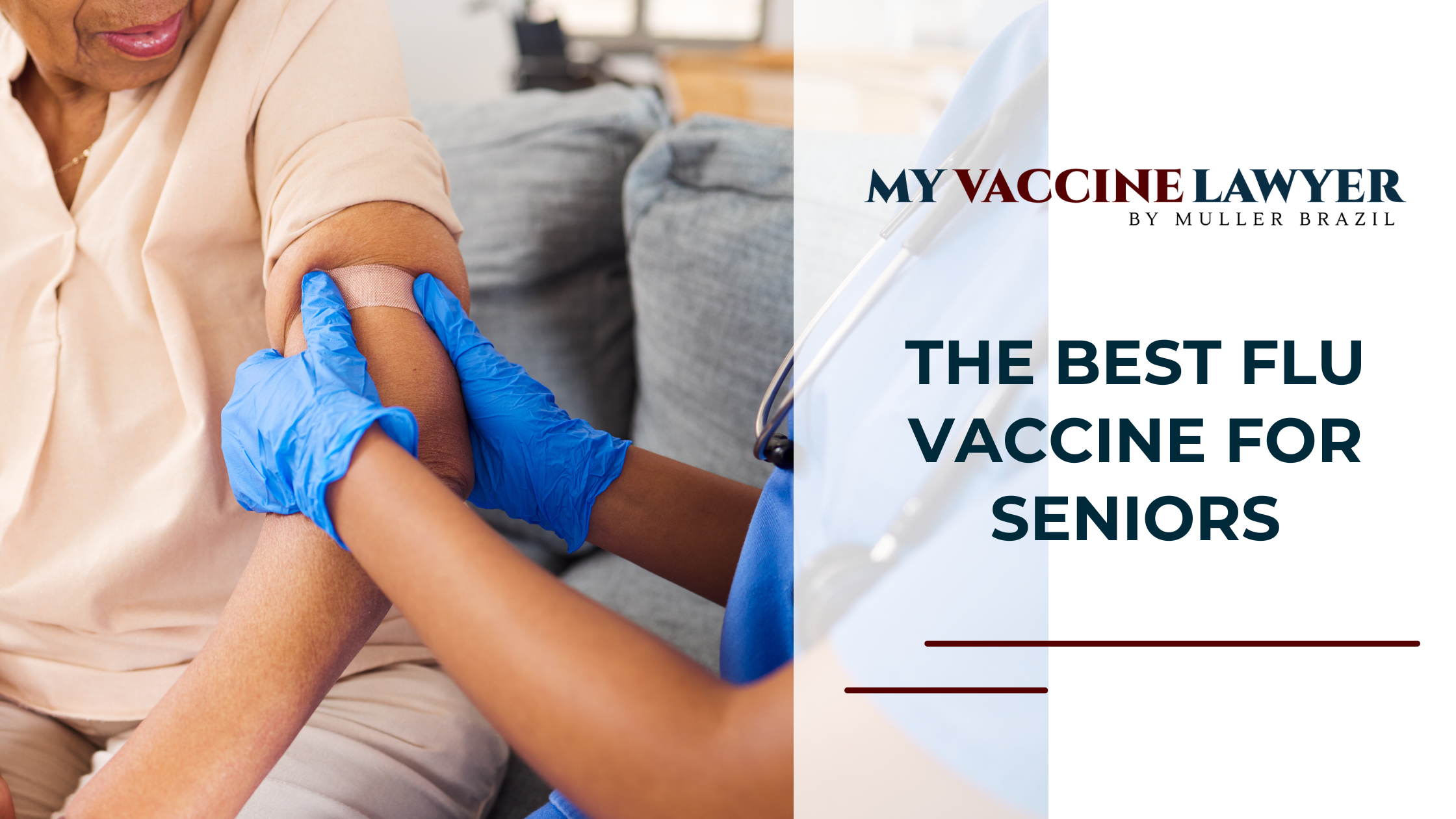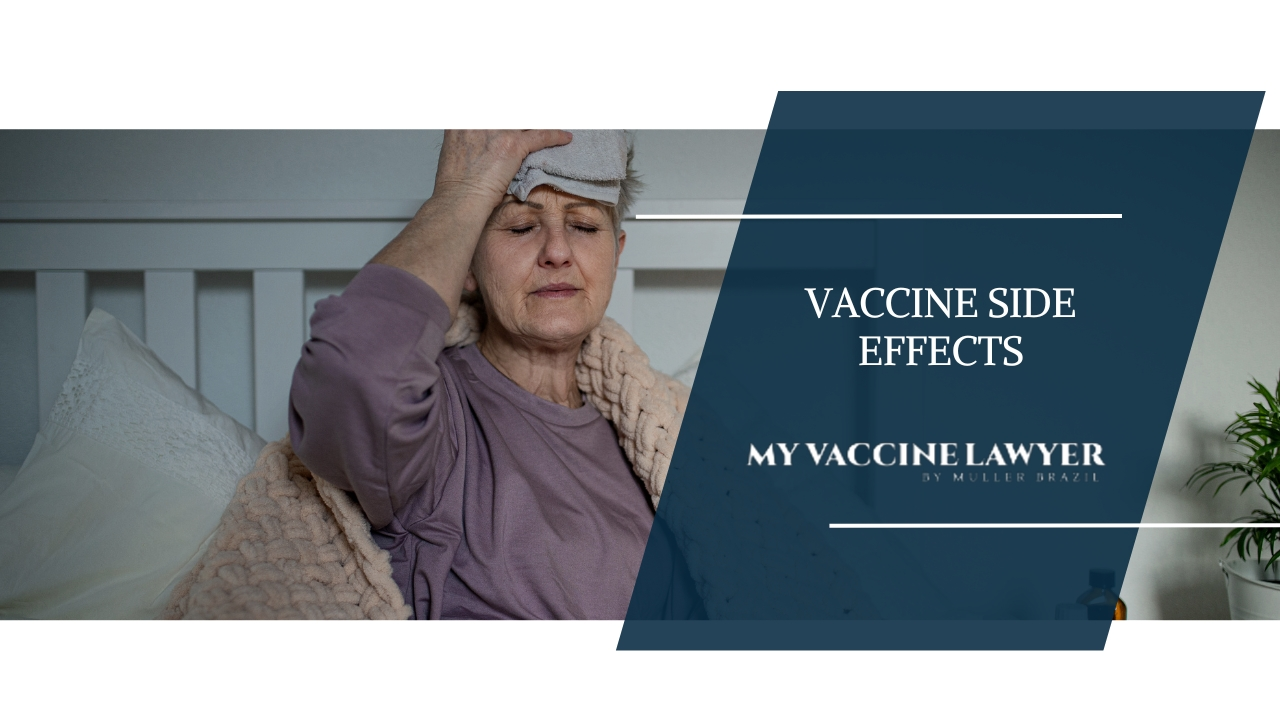Pneumonia Shot Pain: How Long It Lasts & When to Worry
Getting a vaccine is a routine part of staying healthy, but that doesn’t mean it’s always comfortable. If you've recently received a pneumonia shot,...
7 min read
Vaccine Injury Law Resources / Vaccines / Vaccine Side Effects Guide - Understand and Protect Yourself
 Paul Brazil
:
Nov 30, 2023 12:00:00 PM
Paul Brazil
:
Nov 30, 2023 12:00:00 PM
Vaccines stand at the forefront of modern medicine, vital in protecting public health. Yet, understanding vaccine-induced side effects is equally important.
This guide sheds light on the delicate balance between the benefits of vaccines, like the COVID-19 vaccine and flu vaccine, and the potential adverse events they may cause.
In a world where informed choices are key, comprehending the intricacies of vaccine side effects is vital. By grasping this knowledge, individuals can make their health decisions with greater confidence and awareness, especially when unexpected reactions occur.
Vaccines, including widely administered ones like the COVID-19 vaccine and flu shot, often lead to some side effects. These are generally mild and temporary. The most typical ones include:
When a vaccine enters the body, it stimulates the immune system without causing the disease. Vaccines can trigger symptoms like fever or muscle pain, signs of the immune system's activation. Essentially, the body mimics an infection, preparing its defenses for future encounters with the pathogen.
It's important to understand that these reactions are generally a positive sign; they indicate that the vaccine effectively trains the immune system.
Most vaccine side effects, while possibly uncomfortable, are indicators of the body's journey to building protection against a disease. For instance, a sore arm signifies that the immune cells are responding to the vaccine's presence, and a fever might indicate that the body is ramping up its defensive mechanisms.
While the idea of side effects might cause concern, it's important to weigh these temporary discomforts against the potential risks of not being vaccinated. Vaccines are critical in disease control and protecting those with a weakened immune system. It's also worth noting that severe allergic reactions or life-threatening allergic reactions to vaccines are extremely rare.
Understanding these possible side effects helps in making informed decisions about vaccinations. If unusual or severe symptoms occur, it's advisable to seek medical care.
Recognizing when a reaction is beyond normal is key, and in rare cases where serious injuries occur due to allergic reaction to a vaccine, legal recourse through programs like the Vaccine Injury Compensation Program (VICP) might be an option.
Alongside common side effects, vaccines can, on rare occasions, lead to more serious reactions. While these instances are uncommon, they are significant and sometimes lead to vaccine injury claims. Some of these rare but serious side effects can include:
In the context of vaccine law, these rare but serious side effects sometimes lead to vaccine injury claims. When individuals experience severe adverse events, the legal aspect becomes relevant.
In the United States, the Vaccine Injury Compensation Program (VICP) provides a platform for individuals to seek compensation if they believe certain vaccines have harmed them.
It's important to note that the occurrence of these serious side effects is very low compared to the millions of doses administered. Organizations like the World Health Organization and the Centers for Disease Control and Prevention (CDC) continuously monitor vaccine safety datalink and reported adverse events to ensure the overall safety and efficacy of vaccines.
When seeking vaccination, individuals are encouraged to discuss any concerns with their healthcare provider, especially if they have a history of severe allergies or weakened immune systems. In the rare event that a serious reaction occurs, seeking immediate medical care and consulting a legal professional experienced in vaccine injury cases can provide the necessary guidance and support.
Vaccines are designed to protect against diseases, but like all medical products, they can have side effects. It’s important to understand that the risk of side effects varies depending on the vaccine. Here’s an overview of different vaccines and their associated side effects:
A study published in the Journal of the American Medical Association found that while vaccines are generally safe, different vaccines are associated with different types and frequencies of side effects.
According to the World Health Organization, the benefits of vaccination greatly outweigh the risks, and side effects are mostly minor and temporary.
Individuals with certain medical conditions or weakened immune systems might have specific considerations regarding vaccination, which should be discussed with a healthcare provider.
For those who experience a severe or life threatening allergic reaction, the legal aspect comes into play. In such cases, consultation with a specialized vaccine injury law firm can guide potential legal recourse through programs like the Vaccine Injury Compensation Program (VICP).
When considering vaccination, it's crucial to balance the benefits against potential risks. Vaccines are important in disease control, drastically reducing the probability of severe illnesses and saving millions worldwide. The World Health Organization and other health bodies advocate for vaccinations as they have been instrumental in controlling outbreaks and protecting public health.
There are concerns about vaccines potentially causing weakened immune systems or severe illness. However, research and statistics show that these occurrences are extremely rare. Most vaccines cause the immune system to react in a way that builds protection, and common side effects are typically mild and temporary. Vaccines strengthen the immune system against specific pathogens.
Vaccination also extends beyond individual protection. It plays a critical role in protecting unvaccinated people, including those with weakened immune systems. Vaccination is particularly important for military personnel exposed to unique health risks during service.
Ultimately, the consensus among healthcare providers and disease control experts is that the benefits of vaccination far outweigh the risks. Vaccines not only protect the individual but also contribute to the wider health of the community, creating a safer environment for everyone.
The Vaccine Adverse Event Reporting System (VAERS) is an important tool for tracking vaccine side effects. Established as a national early warning system, VAERS allows healthcare providers and vaccine recipients to report any adverse events following vaccination.
VAERS plays a vital role in ensuring ongoing vaccine safety and efficacy.
Reporting adverse events through this system is a straightforward process. Individuals submit reports online or via mail if they experience unexpected symptoms or reactions after vaccination. Experts then review these reports to identify potential safety concerns or patterns.
The data collected by the Vaccine Adverse Event Reporting System is crucial for public health officials and researchers. The collected data helps in the continuous monitoring and assessment of vaccine safety, ensuring that the benefits of vaccines continue to outweigh the risks.
For accurate and up-to-date information on vaccine side effects, it’s essential to rely on reputable sources. The World Health Organization (WHO) and various Disease Control Centers provide comprehensive data and guidelines on different vaccines. Their websites are rich resources for understanding the potential side effects of each vaccine, from the common flu shot to the COVID-19 vaccine.
In addition to global and national health organizations, your healthcare provider is a reliable source for personalized information. They can offer guidance based on your medical history and specific circumstances.
From a legal perspective, especially in cases of severe side effects leading to potential claims, consulting with a specialized vaccine injury law firm provides clarity and options for recourse.
The Vaccine Injury Compensation Program (VICP) serves as protection, offering recourse for individuals who experience severe adverse events following vaccination.
Established by the U.S. government, the VICP provides a pathway for compensation without the complexities of traditional legal processes, specifically for vaccine-related injuries.
Eligibility for VICP hinges on demonstrating that a severe adverse event, possibly a very severe allergic reaction or a debilitating condition, is linked to a vaccine covered by the program. This could include vaccines such as the flu shot, TDAP vaccine, or others listed by the program.
Initiating a claim involves filing a petition with the U.S. Court of Federal Claims, accompanied by comprehensive medical documentation and evidence of the vaccine injury.
Expertise from a dedicated vaccine injury law firm is key in this process. Legal professionals specializing in the intricate VICP system ensure that reported adverse events are thoroughly represented, and claimants' rights are strongly advocated for.
By providing a structured approach to addressing rare but serious side effects of vaccines, the Vaccine Injury Compensation Program plays a vital role in maintaining trust in vaccination programs and disease control efforts, offering a balanced response to the increased risk of vaccine-related complications.
Vaccines are vital in public health, but understanding their side effects is key. While most reactions are mild, severe cases need attention and possible legal action. The Vaccine Injury Compensation Program (VICP) offers a path for those affected.
If you suspect a vaccine injury, My Vaccine Lawyer can help. Our experts will guide you through the legal process with care and professionalism. Contact us for support and to explore your options.
Paul Brazil is a native of Dunmore, Pennsylvania and a graduate of Dunmore High School. For his undergraduate education, he attended Bloomsburg University where he majored in political science. He then went on to earn his JD from Widener University School of Law. Following graduation from law school, Mr. Brazil worked at a large Philadelphia civil defense firm where he litigated workers’ compensation claims and Heart and Lung Act cases. In 2012, he joined with his coworker Max Muller to form Muller Brazil.

Getting a vaccine is a routine part of staying healthy, but that doesn’t mean it’s always comfortable. If you've recently received a pneumonia shot,...

While mild soreness is expected after a vaccine, persistent arm numbness may indicate nerve irritation or an immune reaction.

Vaccines have a powerful role in protecting against dangerous diseases, especially for older adults and individuals at high risk.
